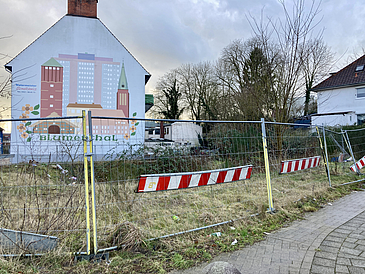On 01.02.2025, the 3-year joint project SalusTransform was launched in the Department of Social Epidemiology (Head: Prof. Dr. Gabriele Bolte) and the Epidemiology of Demographic Change working group (Head: Prof. Dr. Karin Bammann) of the Institute of Public Health and Nursing Research (IPP). Integrated urban development concepts are being comprehensively evaluated in cooperation with the Bochum University of Applied Sciences and the Wuppertal Institute for Climate, Environment, Energy gGmbH. The Federal Ministry of Education and Research (BMBF) is funding the joint project with a total of 1.66 million euros. In a previous BMBF-funded concept development phase, Prof. Dr. Gabriele Bolte, Prof. Dr. Karin Bammann and Dr. Justus Tönnies elaborated the evaluation concept and the funding application.
The interdisciplinary joint project headed by Prof. Dr. Gabriele Bolte is investigating integrated urban development concepts (IUDC) as complex and dynamic interventions. IUDC are urban development instruments of a municipality for urban, socially and economically disadvantaged urban areas. They are drawn up for a selected urban district with the participation of various departments, local stakeholders and the public. IUDC cover a wide range of measures, for example to improve the quality of residential buildings, mobility options, public green and open spaces and social and health care structures. To date, it has primarily been the procedures for developing and implementing integrated urban development concepts that have been evaluated. The SalusTransform joint project is the first comprehensive evaluation of its impact to be carried out in Germany. The aim is to clarify whether IUDC lead to an overall improvement in health, a reduction in social inequalities and greater ecological sustainability. To this end, districts in the three case study cities Bremen, Bochum and Wuppertal with and without IUDC will be compared. In Bremen, these are Blumenthal and Kirchhuchting.
Together with stakeholders from the municipal administration and from the urban districts, the process of designing the content and implementing the various measures of an IUDC will be examined. Furthermore, research is being conducted into how integrated urban development concepts affect the design of health-promoting and sustainable living conditions for all people in the urban district.
The evaluation is based on extensive data. The perspectives of residents, administration and practitioners in the respective areas are of particular importance. In addition to the collection of municipal data, surveys of the various groups and measurements of physical activity and sleep, participatory formats such as district walks and citizen science approaches to measuring air pollution in the urban areas are carried out.
The evaluation methodology developed and tested by SalusTransform is to be introduced permanently in the participating municipalities and be transferable to other municipalities. The aim is to support evidence-based action in the municipalities as part of a “health-in-all-policies” strategy that takes health into account in all policy areas.


